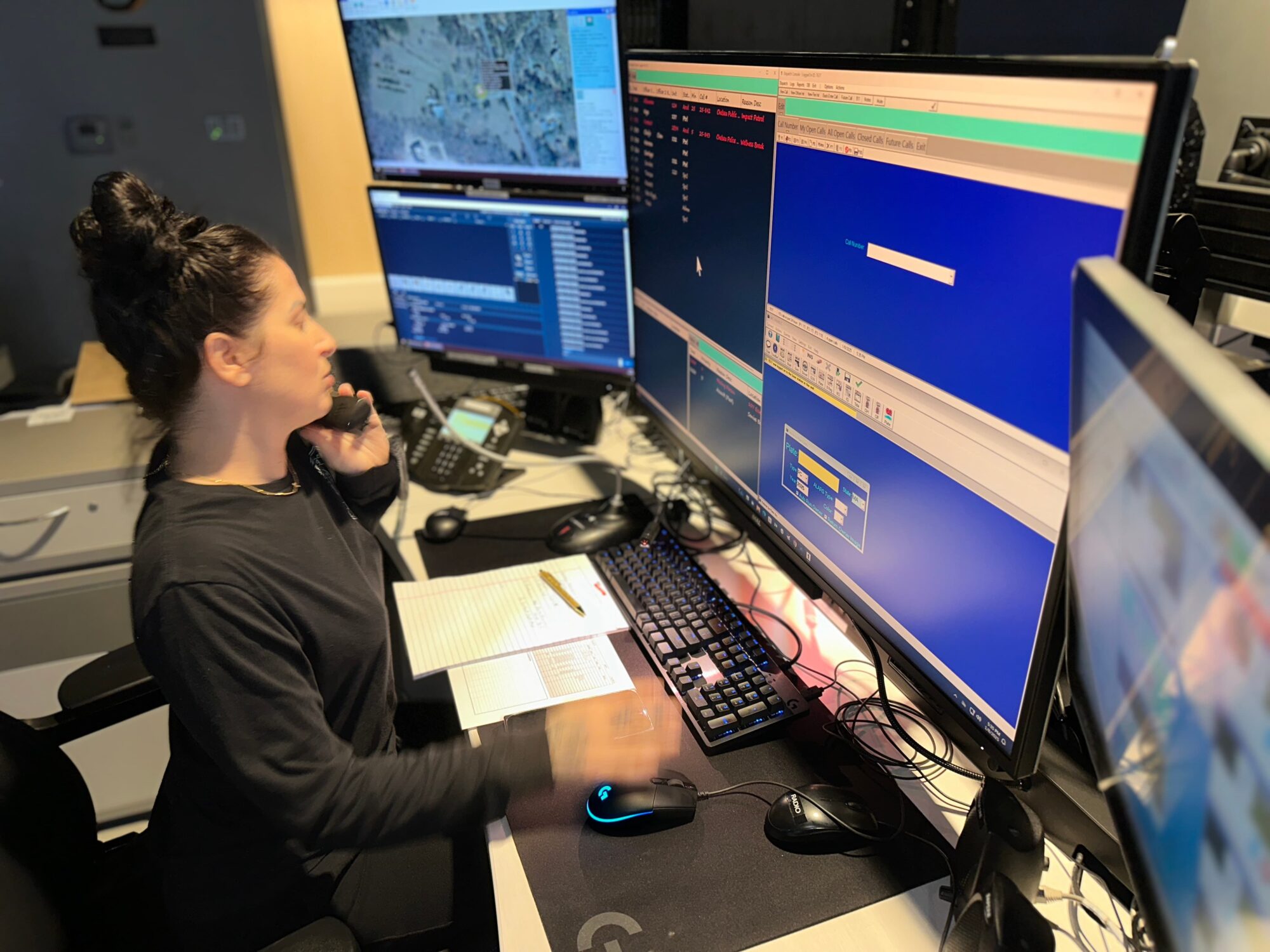
By Brian Wright O’Connor
Veteran dispatchers working in the nerve center of Chelsea’s emergency-response system are sending out 911 calls about a controversial plan to regionalize public-safety answering services.
Under the strategy proposed by civic officials, Chelsea may join the municipalities of Revere and Winthrop in routing all emergency calls to a regional facility to be headquartered in the vacant McKinley School in Revere.
According to Miriam Acevedo, closing down the recently renovated Chelsea emergency call center on Washington Avenue and folding 911 operations within the existing partnership between Winthrop and Revere will add an unnecessary middleman to the response protocol.
The change would delay response times to police, fire, and medical emergencies and pose a danger to Chelsea residents and first responders, said Acevedo, who has worked amidst the panicked calls, cackling radios, and banks of computer monitors at the emergency command center for six years.
“We are concerned about the safety of our residents because of adding a step in the process of responding to calls,” she said. “Right now, we answer a call and simultaneously dispatch it over the air to a unit for response. At the regional center, the call-taker would enter the call into the system and then send it to a dispatcher in one of the three cities – to fire, police, or EMTs.”
Chelsea’s 14 dispatchers, providing round-the-clock response to thousands of 911 calls, feed traffic-stop information, arrest warrant confirmations, and hazard checks in real time to first responders even as calls are underway – background that protects not only callers but first responders as well, said Marie Michela, who has worked at Chelsea’s Public Safety Answering Point for four years.
Michela said claims by city leaders in the three towns that regionalization would make the system more efficient are misleading.
“That’s not the case,” she said. “We’re so fast now at what we do. When we get a high-priority call, everyone is tuning in and listening. The call is being dispatched before it’s finished – all while we’re adding more information for first responders.”
In a joint letter last month from Winthrop, Revere, and Chelsea officials, plans to bring Chelsea into the Metro North Regional Emergency Communication Center within the next few years were described as bringing numerous benefits to Chelsea if it joins the partnership.

“By consolidating our dispatch teams, we will improve our ability to respond to emergency calls, particularly during high-demand periods,” wrote Winthrop Town Manager Tony Marino, Revere Mayor Patrick Keefe, and Chelsea City Manager Fidel Maltez.
“Instead of relying on small, individual teams, the RECC will house a centralized group of up to 16 dispatchers, more efficiently providing our public safety personnel with the critical support they need,” they wrote. “We will be able to share resources, reduce response times, and standardize protocols for a more consistent level of service.”
About half of Massachusetts’ 351 cities and towns are part of regional call centers, according to a fact sheet issued by the Chelsea city manager, who did not return calls for comment. A total of 170 Massachusetts communities make up 31 regional centers across the Commonwealth.
Cost savings and efficiency are often cited in plans to shift local services to regional approaches, with savings to cash-strapped cities and towns reaped by slashing administrative overhead.
Regional centers in other states serve as many as one million area residents. By contrast, the predominantly Latino population of Chelsea amounts to about 40,000 residents living in a densely packed 2.46 square miles.
The McKinley School in Revere is located 1.6 miles from Chelsea City Hall, making the proposed location easily accessible to all three communities, according to the fact sheet. The new facility serving the three Suffolk County communities would include a lunchroom, training center, and fitness center.
While focused on the public safety impacts of the proposed switch, the Chelsea dispatchers are also taking aim at the claim that the current Chelsea 911 unionized dispatch staff will be offered jobs at the regional center.
“They actually can’t guarantee our jobs or protect our seniority,” said Acevedo, noting that the 16-person team at the proposed expanded call center numbers two more dispatchers than currently work in Chelsea. “It just doesn’t add up.”
Michela said she was concerned on a personal level about possible layoffs and applying to get their jobs back through a new employer, with pension and other benefits up in the air. “It’s very disheartening,” she said. “And it was devastating to find out about the plans through the Chelsea Record newspaper.”
The dispatchers are urging Chelsea residents to contact the city manager and members of the Chelsea City Council to stave off the proposal.
“They are making decisions without knowing what’s going on in our own room. There are relationships between Chelsea residents and dispatchers that go back years. This affects a lot of people.”







